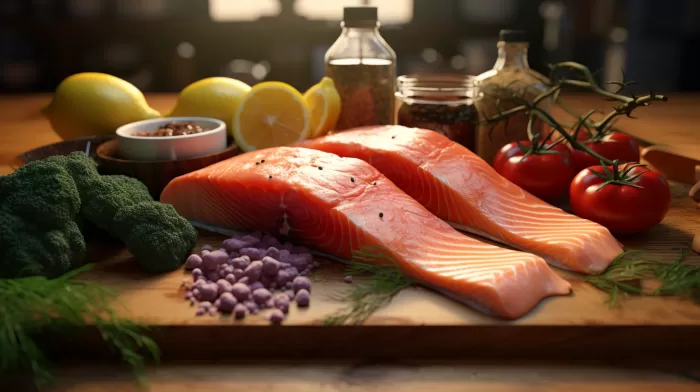While polyunsaturated fats, commonly known as vegetable oils, have long been promoted for their heart-healthy benefits, not all vegetable oils are created equal. Some may even prevent your progress towards better health or lead to diseases. The essential fatty acids in these fats, omega 6 and omega 3, play different roles in the body—omega 6 fats are pro-inflammatory while omega 3 fats are anti-inflammatory.
Our bodies need both types of fats, but the ideal ratio is around 2:1 or at most 4:1. However, the modern Western diet poses a significant problem as studies show that the ratio of omega 6 to omega 3 in our diet has climbed to as high as 20:1. Excessive intake of omega 6 fats has been linked to numerous health issues such as atherosclerosis, asthma, arthritis, bone loss, cancer, heart attacks, depression, behavioral problems, and migraine.
Many vegetable oils, including widely-used ones like corn, cottonseed, soybean, grape seed, and sunflower, are high in omega 6 fats and contribute to inflammation in the body. Here’s a list of foods high in omega 6 and omega 3 fatty acids:
- Foods high in Omega 6: sunflower, soybean, cottonseed, peanut, corn, grape seed, margarines, grains, conventional meats, sunflower seeds, pine nuts, butternuts
- Foods high in Omega 3: salmon, sardines, mackerel, flaxseed, chia seeds, hemp seed
Conventional meats have high omega 6 content because animals are often fed with grains. This is avoidable if you opt for grass-fed or organically raised animals instead, which contain higher omega 3 fat content.
10 practical steps for an “oil change” in your body
To protect your health and decrease your intake of omega 6 fats, here are some tips:
- Choose organic free-range meats and poultry as your first option.
- Opt for grass-fed beef instead of conventional beef.
- Eat free-range eggs.
- Limit grain intake to one cup a day maximum.
- Reduce or eliminate processed and packaged food items.
- Use virgin olive oil or coconut oil in place of other vegetable oils.
- Eat more vegetables instead of grains.
- Consume fatty fish such as salmon, sardines, tuna, mackerel, and herring, on a weekly basis.
- Eat hemp, flax, and chia seeds daily.
- Take an omega 3 fish oil or flaxseed oil supplement.
Adopting these changes and decreasing your intake of omega 6 fats can lead to strong, protective health benefits. Give your body an “oil change” and start your journey towards better health now.



![8 Simple Rules to Refresh Your Body with a Healthy Cleanse [See Pictures]](https://naturalhealthreserve.com/wp-content/uploads/2024/01/8-rules-healthy-cleanse-slideshow-300x168.webp)